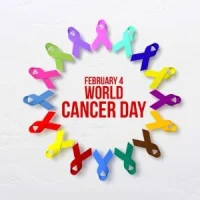In Europe, access to quality cancer remains a big issue. Great heterogeneity exists with respect to drugs, screening programmes and resources among different countries in Europe. The most neglected of all cancer populations comprise of those with lower rates of early diagnosis and treatment compliance. Migrants and refugees appear to be one of those populations.
Dr. Alexandru Eniu, Head of the Day Hospital Unit, Department of Breast Tumours, Cancer Institute "I. Chiricuta", Cluj-Napoca, Romania, Chair of the ESMO Emerging Countries Committee and ESMO Executive Board member was asked to identify strategies which could be used to overcome these disparities in cancer care.
Dr. Enju was of the opinion that big discrepancies not only exist among European countries but also outside. He identified multiple reasons for this including different healthcare systems, reimbursement, resource environments and quality of personnel.
According to the EUROCARE study, significant disparities exist among Eastern Europe, Western Europe, Northern and Central Europe. Similarly, the ESMO European Consortium Study on the availability of antineoplastic medicines found marked discrepancies in access to expensive and newer drugs and shortages for inexpensive, old but essential medications. Access to radiotherapy was also identified as a problem but ws more evident outside Europe.
Dr. Enju pointed out that some cancers are preventable through screening but because refugees and migrants usually do not have access to screening or early detection due to their displacement and have limited access to the healthcare system, they often end up neglecting early signs and symptoms and only seek medical help when it becomes absolutely necessary.
In a study presented at ECC2015, the findings showed that over 11,000 migrants and refugees included in the study showed a predominance of the frequent tumour types (breast, colon, lung) which is higher than in average population. Nearly half of these patients were diagnosed at a late stage and did not even complete therapy.
Dr. Enju emphasised on the need to put more attention on providing cancer treatment and care to the underserved population and to create awareness among politicians and policy makers to address the needs of those who are neglected such as the migrants. He is confident that in the long run, if these disparities are tackled and the best care is made available to all cancer patients, survival will improve and the health system would benefit.
Source: European Society for Medical Oncology
Image Credit: Flickr


![Tuberculosis Diagnostics: The Promise of [18F]FDT PET Imaging Tuberculosis Diagnostics: The Promise of [18F]FDT PET Imaging](https://res.cloudinary.com/healthmanagement-org/image/upload/c_thumb,f_auto,fl_lossy,h_184,q_90,w_500/v1721132076/cw/00127782_cw_image_wi_88cc5f34b1423cec414436d2748b40ce.webp)







